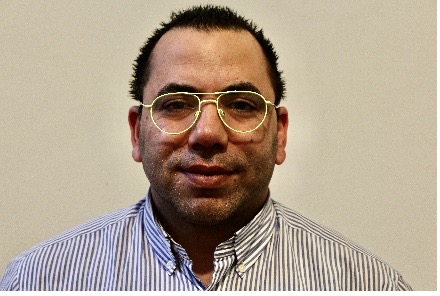The Centre for Postdigital Cultures and the Post-Publishing Research Strand are pleased to announce a seminar on migrant poetry and publishing with readings by Amir Darwish and Priscilla Okoye, followed by a discussion led by Alexandros Plasatis.
- Wednesday, 28 May 2025
- 2pm to 3.30pm
- Venue: Coventry University, Jaguar Building, room JA104
FREE event open to the public and Coventry University students and staff.
We request that you please register at the following link: https://www.eventsforce.net/migrantpoetry
As part of this event, there will be poetry readings by Priscilla and Amir, followed by a discussion and a Q&A, where we seek to explore questions such as:
- What is the value of building communities of migrant writers through publishing projects?
- What are the challenges and opportunities for migrant writers towards publishing their work, and how could universities support their publishing endeavours?
- What are the approaches of migrant editors towards publishing fellow migrants?
- How can we support each other and make publishing by migrant writers more open to the wider audience?
Publishing writing by refugees, asylum seekers, and other migrants is a much under-examined area in the (academic) publishing industry as a whole, but also in social justice-focused publishing communities who champion marginalised voices. Alexandros Plasatis’ research focuses in specific on how libraries can promote the publishing endeavours of refugees and asylum seekers and advance their collection development in this area. This event forms an opportunity for researchers and students to engage with his work. It also provides an opportunity for Coventry University staff, students, and the local community to listen to the voices of those underserved, to reflect and revisit their own publishing practices, and to examine more inclusive approaches.
This event wants to ignite discussions within the wider research community on possible collaborations and joint research interests with refugee and other migrant researchers and creatives, and wants to promote further discussions around the positionality of Coventry University in the “Universities of Sanctuary” movement.
All invited panellists are involved in the publication of the literary magazine, the other side of hope, a publication that celebrates writing by migrants, and they will be discuss their journeys towards publication. In 2021, Amir Darwish published in the other side of hope his short memoir on making the crossing from Belgium to England under a lorry back in 2003; in 2022, Amir joined the magazineas their poetry co-editor. Priscilla Okoye’s poem “I see you” was published by the magazine in 2023, and the next year her poem “Mother’s Tongue”, written in English and translated into Iqbo by her mother, Nkoli, was published in the magazine’s “other tongue, mother tongue issue”. Alexandros Plasatis founded this publication in 2021, and so far they have published 9 issues and over 350 migrant writers from around the world.

Amir Darwish is a British Syrian poet & writer of Kurdish origin who lives in London. Born in Aleppo in 1979, he came to Britain as an asylum seeker in 2003. His work has been published and anthologised worldwide. His poetry was translated into Arabic, Bengali, Estonian, Finnish, Italian, Spanish, and Turkish, amongst other languages. He was part of several radio programmes, including BBC 4 and BBC World Service. Amir attended literary and poetry festivals worldwide, including Finland, India, Italy, Turkey, Morocco, and Estonia. His two collections of poetry are Dear Refugee (Smokestack, 2019) & Don’t Forget the Couscous (Smokestack, 2015).

Priscilla Okoye is a poet and writer whose work explores themes of migration, belonging, and identity. Drawing from personal experience and cultural reflection, her poetry speaks to the emotional journeys of displacement, survival, and hope. Through vivid imagery and intimate storytelling, she captures the complexities of human experience, blending nostalgia with resilience. Her writing resonates with those who have navigated challenges, seeking both sanctuary and the strength to rebuild. Priscilla’s work is deeply influenced by her engagement with migrant communities and her volunteer role at a recovery house, where she uses creative expression to foster emotional well-being and healing.